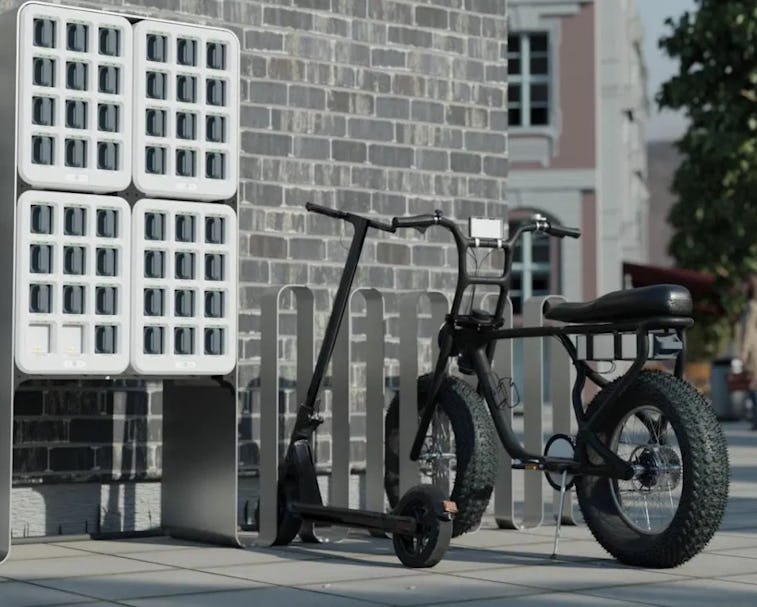Tech
This open-source battery standard for e-bikes and e-scooters would rock
What if all electric bicycles and e-scooters used the same swappable battery packs? That's the question Teleport Mobility is asking.

Just about every electric scooter and bicycle uses its own proprietary battery pack, meaning replacements can be expensive and hard to acquire. Charging is also a problem because you typically have to find an AC outlet to plug your rig into, and if you run out of juice out in the world, you need to get back to your charger, which is often at home or at the office. Swedish startup Teleport Mobility thinks its swappable battery system may be the solution to these problems, and one that makes the shared mobility industry more environmentally friendly.
Swap me out — Teleport Mobility wants to create a network of battery swapping stations located at businesses like convenience stores (think Amazon Lockers), and shared mobility companies like Lime could incorporate Teleport's battery design into their bikes and scooters. Instead of needing an army of contractors to recharge rides, users could just find one of the battery stations and swap the battery out. Teleport says its battery packs are also built to endure, meaning better reliability and longer lifespans than many existing mobility batteries in production today.
Recharge, recycle — The solution is supposed to further reduce emissions for an industry that has promised to be an environmentally friendly alternative to cars. All that driving back and forth to charge batteries somewhat negates the promised sustainability, though, and by standardizing the battery designs they could be more easily reused and recycled.
The future of shared mobility — It's an interesting idea but one that seems like it would appeal to the shared mobility industry most of all. Lime and others have very thin profit margins because the scooters and bikes break down quickly thanks to wear-and-tear, and people treating them roughly because they're rentals —something companies like Unagi are trying to address — and because of the challenges of keeping the fleet charged. Their future success relies on improving the overall lifetime of the vehicles and bringing charging costs down.
Companies that sell e-bikes and scooters directly to customers, however, may be less incentivized to adopt a durable, open battery standard. Propretary batteries are a way to continue making money from customers beyond the initial vehicle sale. Just look at a company like Apple: it prefers using its own charging cables because that creates brand lock-in and a thriving third-party ecosystem for licensed products.
Everyone needs to sign up — The vision is ambitious because — like any other standard — it'll only work if lots of companies get on board. A shared battery system would certainly make some things easier, but we have to wonder whether standardizing charging ports wouldn't be better.
Swapping batteries is fast but if you instead had racks where all scooters could be docked and charged, you could still alleviate the charging issue and you'd ensure the sidewalks are clear — a big gripe of officials in cities around the world. Either way, Teleport's vision suggests that the shared mobility sector is continuing to mature at a brisk pace. Crowded bicycle lanes and sidewalks filled with parked scooters are certainly better than cities consumed by cars and choked by emissions.
Teleport says it will be launching a battery swapping pilot in northern Europe with select partners next month, with a more extensive launch planned for 2021.